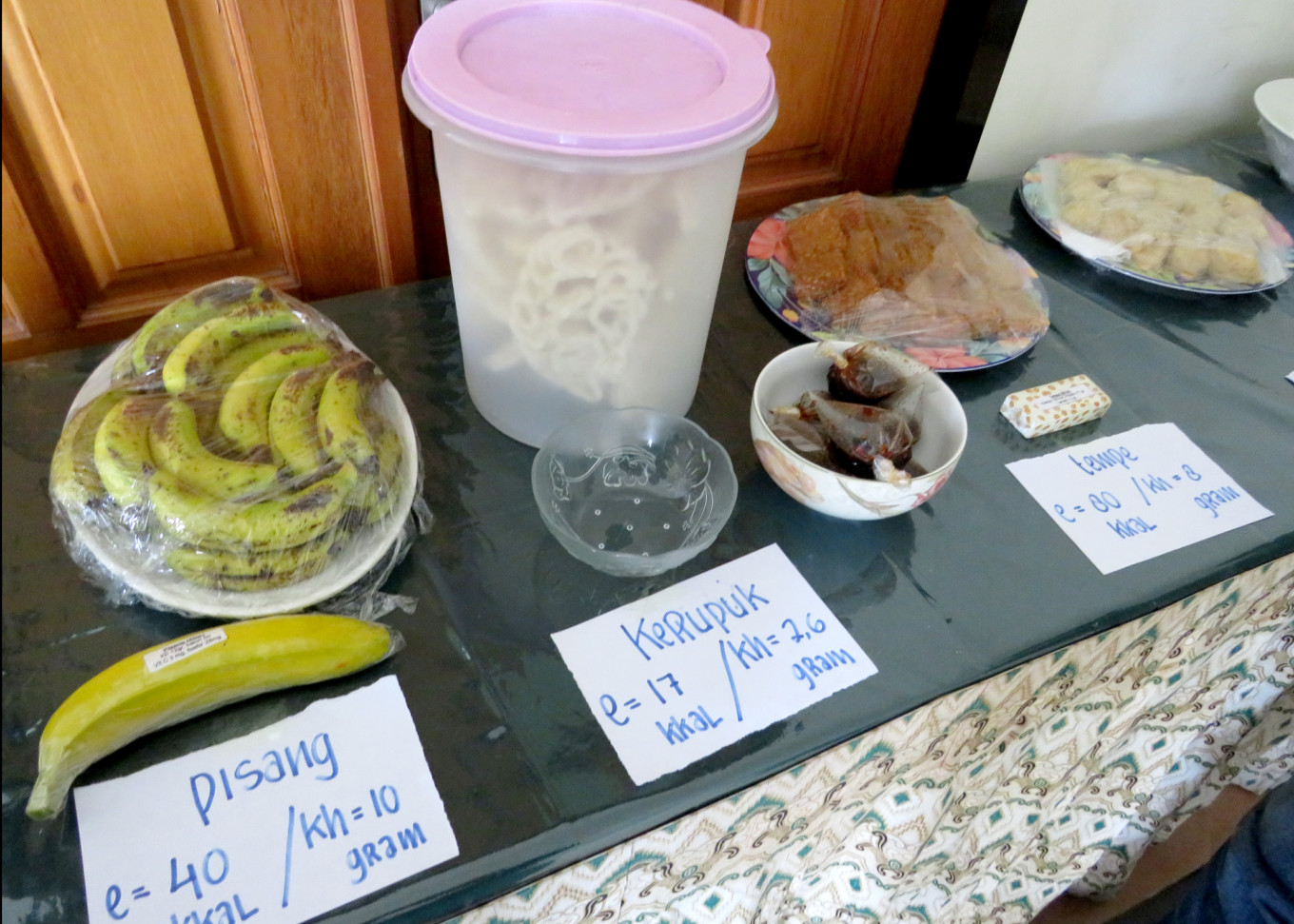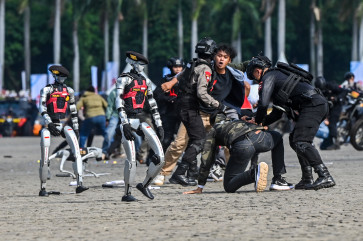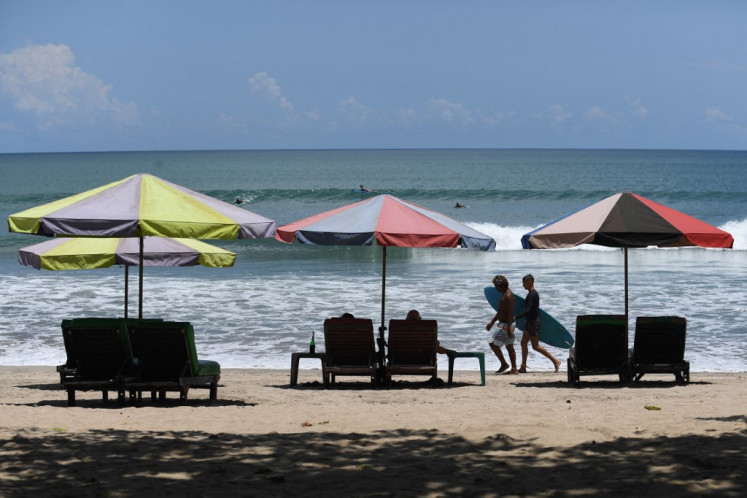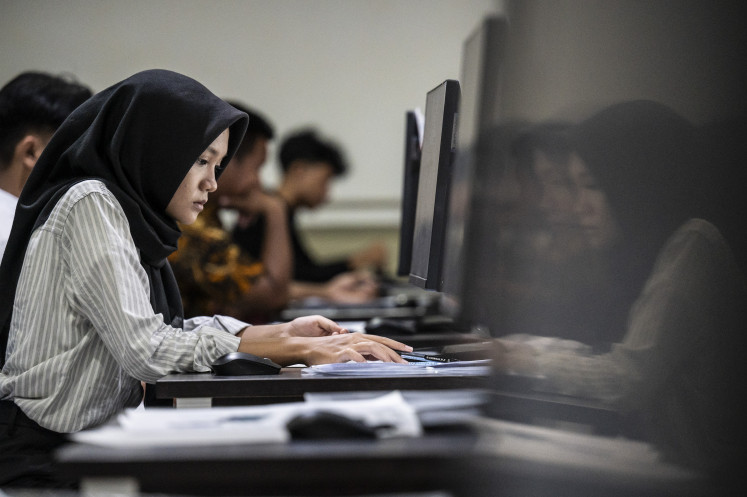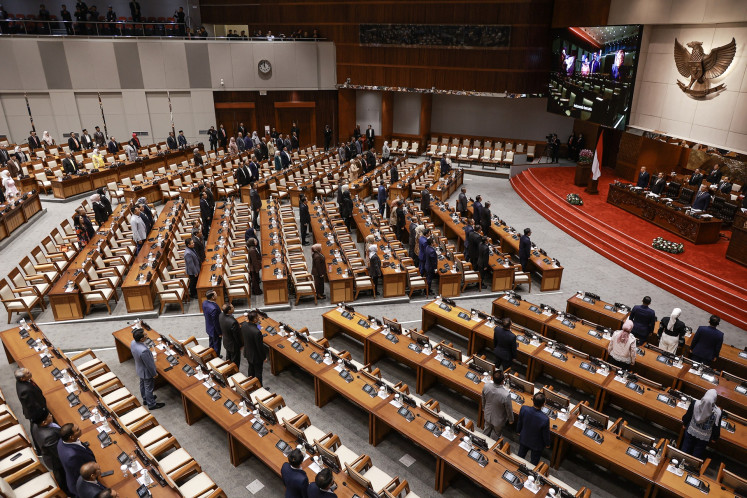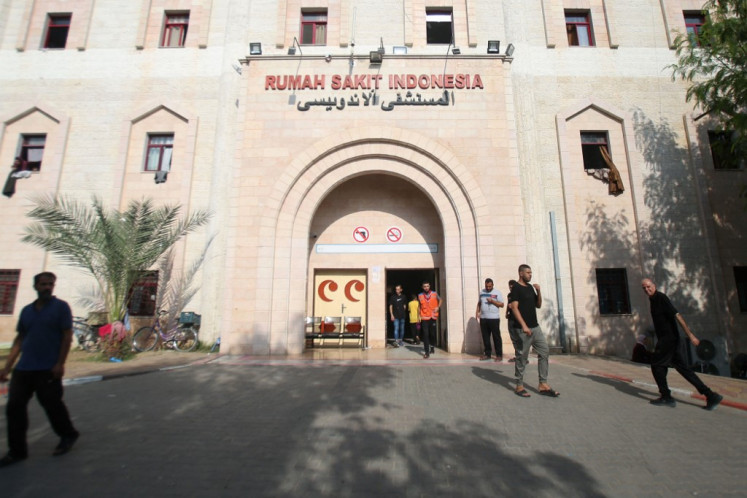Popular Reads
Top Results
Can't find what you're looking for?
View all search resultsPopular Reads
Top Results
Can't find what you're looking for?
View all search resultsCollaboration to drive nutrition awareness in Indonesia
Ironically, Indonesia is also one of the countries suffering from the triple burden of malnutrition.
Change text size
Gift Premium Articles
to Anyone
I
ndonesia, the 10th largest economy (in terms of purchasing parity) and the world’s fourth most populous nation, has shown immense resilience and made enormous gains in poverty reduction, cutting the poverty rate by more than half since 1999, to 9.78 percent in 2020.
The global pandemic has caused significant setbacks on many economies including Indonesia but, the nation managed to keep its majority population dropping below the poverty line through the expansion of a social assistance program. This program was launched by the government as an immediate response to the pandemic and was supported by the World Bank. The assistance package also included significant funds to improve the preparedness of the health sector.
Indonesia’s resilience in the new normal is also a function of the high focus and initiatives of the government to mitigate and contain the effect of the pandemic. And undoubtedly, controlling the spread, enhancing healthcare capacity, regular testing and vaccination will be the primary focus of the Indonesian government for this year.
However, it is important to draw the focus of authorities on matters related to general wellbeing, health and immunity of the population, especially among the younger generation. At the moment, according to the World Bank's Human Capital Index, Indonesia's next generation will only be 54 percent as productive as she or he could have been with full health and complete education.
Nutrition availability and awareness becomes a lot more important in these times and efforts must be made to ensure Indonesia’s strong and productive human capital.
It is also important to realize that the task of achieving a superior healthcare is not achievable without active involvement and contribution of key stakeholders who are not limited to just the government but also the food manufacturers, public nutrition entities, nutrition societies, food regulators, healthcare professionals (HCPs) and nutrition companies.
Within healthcare, nutrition is one agenda which has been less understood and emphasized upon. Herbalife Nutrition conducted a Nutrition Myths Survey with 5,500 consumers and 250 HCPs as respondents. The survey was administered in Australia, Hong Kong, Indonesia, Japan, Korea, Malaysia, Philippines, Singapore, Taiwan, Thailand and Vietnam in March 2020.
The insights form this survey revealed that respondents generally had lack of confidence in their nutrition knowledge, and paucity of time was often cited as the reason for their ignorance. Indonesia however, exhibited the highest confidence in terms of nutrition knowledge with nearly 70 percent respondents claim to be extremely or very well-informed on nutrition knowledge.
Ironically, Indonesia is also one of the countries suffering from the triple burden of malnutrition. According to UNICEF survey conducted in 2018, 3 in 10 children under 5 years of age were stunted while 1 in 10 were wasted. A fifth (20 percent) of primary school-aged children and about 15 percent of adolescents are overweight or obese. Two million children under 5 suffered from severe acute malnutrition, a life-threatening condition if left untreated.
The gap and data are symbolic of the existence of nutrition myths in the community which can only be broken through accurate and credible nutrition information. According to the same nutrition myth survey, Indonesian respondents said that HCPs and nutrition companies are the most trusted sources of accurate nutrition information, with nearly all saying that they are keen to receive this information from their own doctors. Unfortunately, the lack of time during medical consultation is the primary cause why HCPs fail to share nutrition information with their consumers in the country.
To achieve the desired state of nutrition awareness and knowledge in Indonesia, collaboration is the key. Multiple sectors and economies are witnessing and experimenting with innovative collaborations and partnerships in the healthcare space.
A few of these possible collaborations to bringing about an effective, significant and agile change now include not one or two but, multiple stakeholders playing a part in the food and nutrition supply chain. The quality and nutritional content of food right from the cultivation stage impacts the eventual state of nutrition in a country. Food manufacturers, suppliers, nutrition companies, advocates and most importantly HCPs who according to the Herbalife Nutrition Myth survey top the credibility chart make the most critical peg in the scheme of collaboration.
A very interesting study conducted in 2015 revealed why collaboration is beneficial in healthcare systems. In this study, the various aspects and impacts of collaboration and teamwork were compared with a similar scenario in sports, which always demand team spirit and working together. Over the last few years, we have witnessed the impact of high collaboration that is visible in the public healthcare space that helped build the much-needed efficiency and resilience in the healthcare systems.
Public health and nutrition are a matter of the state and it is critical to have the involvement and support of the government in various forms of public-private partnerships. For example, our company works with the government of Indonesia through the Vice President’s Office (TNP2K) for diabetes screening and through GERMAS (healthy living community movement), a program where we have served as a trusted partner to the Ministry of Health in sharing and disseminating information from GERMAS’ many public health campaigns.
Nutrition foundations and education societies develop a deep understanding of public health, demographics, issues and challenges at the grass root level and the hurdles that may come in the way. Nutrition companies who are experts in the field of nutrition can look at long-term collaborations such as these and support these foundations and societies with accurate nutrition knowledge and other resources needed.
In parallel, the agenda of nutrition awareness can also be achieved through the proper and effective use of consumer-facing technology. Nutrition experts, HCPs and opinion leaders can leverage technology and digital capabilities to share more accurate and useful information with their patients and audiences, and create their own online communities, chat rooms and channels to stay connected with the consumers.
It’s now a matter of bringing all the piece-meal efforts towards the common cause of nutrition together and derive more significant outcomes. A nutrition company can play a bigger role in driving regular dialogues, informative content and support to the HCP community to impart nutrition knowledge to the consumers.
Communities need to transform from within and this transformation should be driven by the HCPs and nutrition experts due to the trust that they evoke from common public.
***
The writer is senior director and country general manager, Herbalife Nutrition Indonesia.

